Literary rating: ★★★★
Kick-butt quotient: ☆☆☆☆
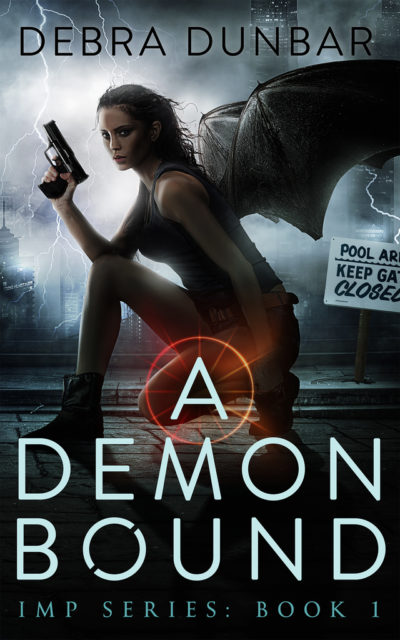
 While the cover image is certainly striking, I should mention that it is inaccurate in one significant point. At no point do I recall the heroine ever wielding a gun. While such false advertising would normally be a sore point, in this particular case, we’ll give them a pass – since the reason she doesn’t, is because she is simply too bad-ass to need one. For Samantha Martin is an imp: a demon who has chosen to spend a chunk of her substantial life-span (measured in centuries) among us mortals, rather than in the underworld. Why? Largely because it’s more fun up here.
While the cover image is certainly striking, I should mention that it is inaccurate in one significant point. At no point do I recall the heroine ever wielding a gun. While such false advertising would normally be a sore point, in this particular case, we’ll give them a pass – since the reason she doesn’t, is because she is simply too bad-ass to need one. For Samantha Martin is an imp: a demon who has chosen to spend a chunk of her substantial life-span (measured in centuries) among us mortals, rather than in the underworld. Why? Largely because it’s more fun up here.
Who needs guns, when like Sam, you possess a broad range of powers, including regeneration, transformation and the ability to manipulate energy? However, she has to be very, very careful about their use, because her kind is not supposed to be prowling the Earth at all. To prevent this, angels are continually monitoring for signs that indicate demonic abilities, and enforce the prohibition with extreme prejudice. A large, glowing sword may be involved. So, Samantha keeps her talents in check and manages her property business, or hangs out by the pool, generally keeping a low profile.
Things are rudely interrupted, however, when her hellhound returns home, much the worse for wear. Turns out he had got into a fight with a werewolf living on a nearby farm, whom Sam ends up having to kill. The local lycanthropes are not happy about this, and demand a service from her as reparation. Turns out a rogue angel, Althean, has been carrying out a one-man program of genocide against the werewolves, and they need someone to stop him. Unfortunately, Sam’s efforts bring her to the attention of Gregory, the angels’ chief enforcer on Earth, who is also on Althean’s trail – but is none too happy to discover Sam’s presence.
This was a tremendous amount of fun to read, mostly because of the heroine, who is unorthodox, to put it mildly. Foul-mouthed and unrepentantly immoral, Sam is a big fan of both sex and violence, largely bemused by human notions such as loyalty and affection, and treats our species as an amusing plaything, put on Earth for her enjoyment. Yet, over the course of the book, it appears there’s more to her than this. The fact she prefers Earth to Hell is just one of the various hidden depths which emerge, and we get to learn about the back-story of this struggle – not least that the angels and demons are not as far apart as either might prefer to think.
While Sam is clearly the book’s core, with it all being told from her first-person perspective, I also enjoyed Gregory and his conflicts. He has issues of his own, with some among his kind endorsing Althean’s murderous mission, as they believe werewolves to be Nephilim, the offspring of angels with humans, and deserving of extermination. It’s all surprisingly complicated, and I’m highly curious as to where the series goes. Credit Dunbar too, for telling a complete and well-rounded story here, albeit with an epilogue to leave the reader intrigued.
This is comfortably R-rated, since Sam has absolutely no problem with using violence, though most of it is against other supernatural entities. Not out of any moral scruples, however, just because we humans aren’t worth the effort! I’d love to see this made into a movie, though given her fondness for nudity – partly for practical reasons resulting from energy transmutation, partly to wind up the more prudish members of society – it would require a particularly broad-minded leading lady. In the meantime, I’ll certainly be investing in further installments of the Imp Series, of which this is the first volume.
Author: Debra Dunbar
Publisher: Inked Entertainment, available through Amazon in both printed and e-book versions.






 Del Castillo is the undisputed queen of the action telenovela. She made her name as the original “Queen of the South” in one of the most popular entries ever,
Del Castillo is the undisputed queen of the action telenovela. She made her name as the original “Queen of the South” in one of the most popular entries ever, 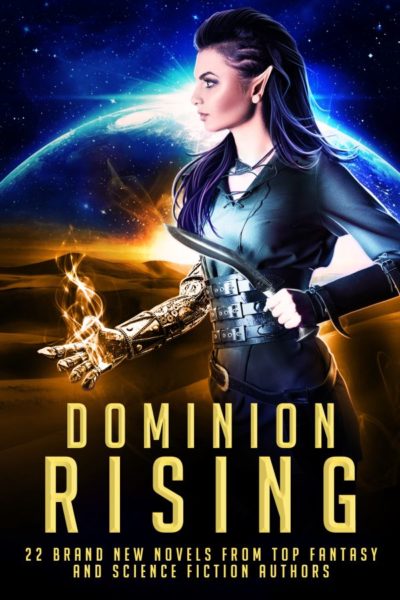 I am a sucker for bulk-buying. Regular readers will know this, since one of the first things reviewed here was the
I am a sucker for bulk-buying. Regular readers will know this, since one of the first things reviewed here was the 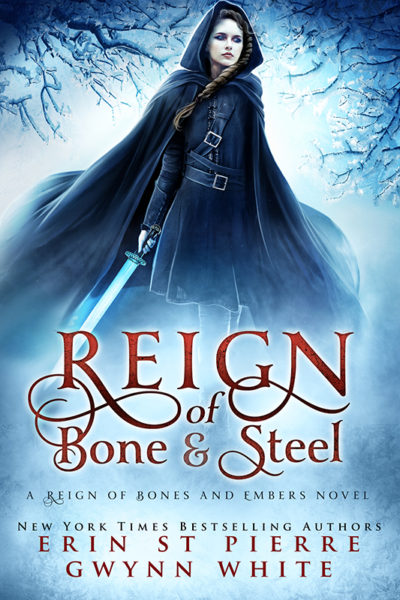 This certainly doesn’t waste any time, starting in the middle of a brutal pitched battle between the kingdom of Yatres, and their mortal enemies, the Nyhans. Among the Fae – basically, elves – in the former army is the warrior Caeda, and it’s her side that emerges victorious. But the price paid by the fallen on both sides is an ugly one. Their souls are absorbed through a magical sword, wielded by the Fae known as the Soul-Reaper, and fed to an artifact called the Bone. The trinity of Bone, sword and Reaper have helped sustain Yatres’s power down the centuries.
This certainly doesn’t waste any time, starting in the middle of a brutal pitched battle between the kingdom of Yatres, and their mortal enemies, the Nyhans. Among the Fae – basically, elves – in the former army is the warrior Caeda, and it’s her side that emerges victorious. But the price paid by the fallen on both sides is an ugly one. Their souls are absorbed through a magical sword, wielded by the Fae known as the Soul-Reaper, and fed to an artifact called the Bone. The trinity of Bone, sword and Reaper have helped sustain Yatres’s power down the centuries. I’m not sure if the problems here are a result of there being two authors credited on this story. It could certainly explain them. For rather than providing a single coherent vision, this feels like both its universe and characters are being pulled in too many different directions. It’s overstuffed with ideas and, instead of them being developed fully, scurries from one to the next, as if the writers were competing to have the final word. This comes to an end in a rather ludicrous finale. There, the entire plot takes a right turn, with the biological weapon which has formed much of the early focus all but discarded.
I’m not sure if the problems here are a result of there being two authors credited on this story. It could certainly explain them. For rather than providing a single coherent vision, this feels like both its universe and characters are being pulled in too many different directions. It’s overstuffed with ideas and, instead of them being developed fully, scurries from one to the next, as if the writers were competing to have the final word. This comes to an end in a rather ludicrous finale. There, the entire plot takes a right turn, with the biological weapon which has formed much of the early focus all but discarded.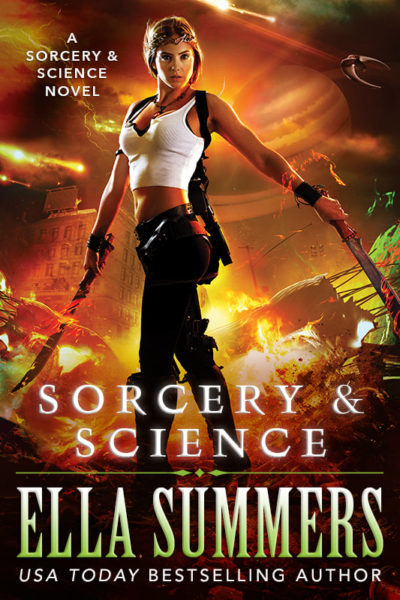 The blurb for this one reads, “Terra Cross is just your typical paranormal princess. She plays poker with goblins and leprechauns. She savors her morning muffin from the Pacific Sunrise Bakery in suburban California. She solves galactic crime cases. And on a particularly wild day, she can even see into the future.” It is somewhat inaccurate, at least as far as this novel goes. I don’t recall any poker at all, muffins appear once, and as for the crime-solving… Well, sorta but not really. There is, however, likely good reason, since the novel is a prequel to Summers’s “Sorcery and Science” series, in which I presume Terra does more of the above.
The blurb for this one reads, “Terra Cross is just your typical paranormal princess. She plays poker with goblins and leprechauns. She savors her morning muffin from the Pacific Sunrise Bakery in suburban California. She solves galactic crime cases. And on a particularly wild day, she can even see into the future.” It is somewhat inaccurate, at least as far as this novel goes. I don’t recall any poker at all, muffins appear once, and as for the crime-solving… Well, sorta but not really. There is, however, likely good reason, since the novel is a prequel to Summers’s “Sorcery and Science” series, in which I presume Terra does more of the above. Petra is a teenage Roman slave at around the birth of Christ. She is completely under the thumb of her sadistic master, Clarius, until a strange conjunction of events and a poisonous herb with mystical qualities changes the power dynamic entirely. Both of them, together with her lover, Lucius, attain immortality. But it’s an immortality which requires the two men to drink from Petra annually, or they will degenerate into sub-human monsters. Neither is happy with the arrangement: Clarius is not used to being reliant on anyone, least of all his former property, and Lucius hates the fact Petra agreed to submit to their ex-master, in order to save him. As the centuries stretch into millennia, Petra begins, slowly, to put together a group people who will be capable of defeating Lucius and the immortals he has recruited, allowing her to live in eternal peace with Lucius.
Petra is a teenage Roman slave at around the birth of Christ. She is completely under the thumb of her sadistic master, Clarius, until a strange conjunction of events and a poisonous herb with mystical qualities changes the power dynamic entirely. Both of them, together with her lover, Lucius, attain immortality. But it’s an immortality which requires the two men to drink from Petra annually, or they will degenerate into sub-human monsters. Neither is happy with the arrangement: Clarius is not used to being reliant on anyone, least of all his former property, and Lucius hates the fact Petra agreed to submit to their ex-master, in order to save him. As the centuries stretch into millennia, Petra begins, slowly, to put together a group people who will be capable of defeating Lucius and the immortals he has recruited, allowing her to live in eternal peace with Lucius.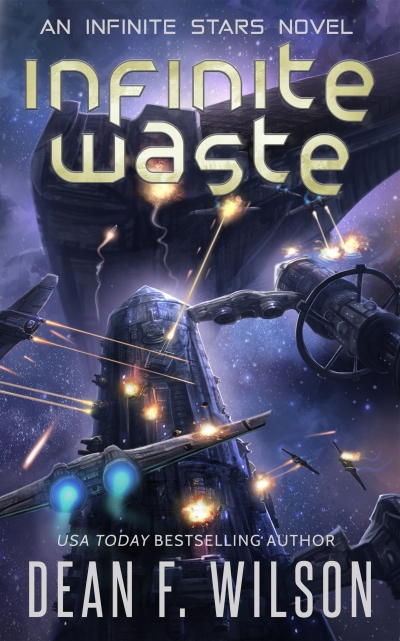 This initially seemed like a borderline entry, which I kept reading purely for entertainment. It’s about an exploratory star-ship, the Gemini, out on the very edge of known space, which comes across a giant barge, packed with nuclear waste and populated by a race of rat-humanoids, the Raetuumak. The Gemini is an appropriate name for the craft, as it’s effectively two separate ships, each with their own captain and very different approaches. Maggie Antwa, commander of Gemini Right, is a cautious scientist who abhors violence in any form, and was compelled to take on this mission after being involved in a environmentalist rebellion against the ruling Empire. Over in Gemini Left, on the other hand, Skip Sutridge is a square-jawed believer in shooting first and asking questions… well, never, to be honest. He has been sent to the fringes, probably to try and keep him out of trouble.
This initially seemed like a borderline entry, which I kept reading purely for entertainment. It’s about an exploratory star-ship, the Gemini, out on the very edge of known space, which comes across a giant barge, packed with nuclear waste and populated by a race of rat-humanoids, the Raetuumak. The Gemini is an appropriate name for the craft, as it’s effectively two separate ships, each with their own captain and very different approaches. Maggie Antwa, commander of Gemini Right, is a cautious scientist who abhors violence in any form, and was compelled to take on this mission after being involved in a environmentalist rebellion against the ruling Empire. Over in Gemini Left, on the other hand, Skip Sutridge is a square-jawed believer in shooting first and asking questions… well, never, to be honest. He has been sent to the fringes, probably to try and keep him out of trouble.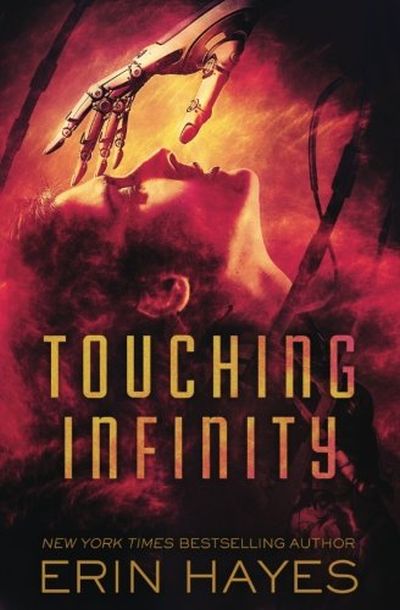 I will confess to a little post-read confusion here. Amazon calls this Volume 2 in the author’s Rogue Galaxy series – but I could find no information, there or elsewhere, regarding Volume 1. I suspect Amazon and Goodreads are wrong, and this is actually the first entry, as stated in the Dominion Rising collection. It certainly
I will confess to a little post-read confusion here. Amazon calls this Volume 2 in the author’s Rogue Galaxy series – but I could find no information, there or elsewhere, regarding Volume 1. I suspect Amazon and Goodreads are wrong, and this is actually the first entry, as stated in the Dominion Rising collection. It certainly 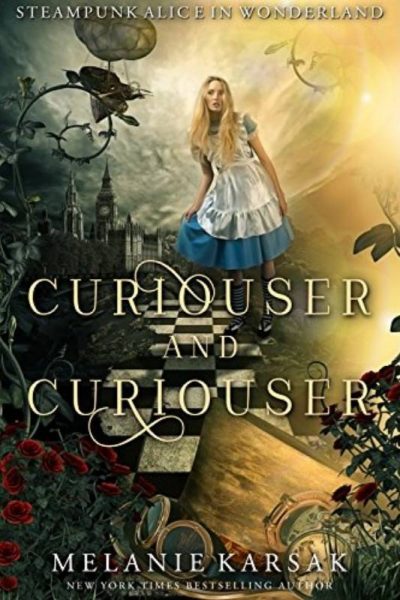 If you thought “Alice in Wonderland was okay, but it really needed more air-ships,” then this book is for you. It’s a steampunk take on Lewis Carroll’s classic tale, set in an alternate universe version of Victorian London. Specifically, 1851, when the renowned Great Exhibition took place in Hyde Park. Though it doesn’t actually feel particularly “alternate”; this angle lives mostly in its trappings, such as people using air-ships to get around, or clockwork cats, rather than in elements necessary to the plot. But that’s okay, because at its core, the story is strong enough to stand on its own.
If you thought “Alice in Wonderland was okay, but it really needed more air-ships,” then this book is for you. It’s a steampunk take on Lewis Carroll’s classic tale, set in an alternate universe version of Victorian London. Specifically, 1851, when the renowned Great Exhibition took place in Hyde Park. Though it doesn’t actually feel particularly “alternate”; this angle lives mostly in its trappings, such as people using air-ships to get around, or clockwork cats, rather than in elements necessary to the plot. But that’s okay, because at its core, the story is strong enough to stand on its own. This final installment (the author confirms that fact in her Acknowledgments) of the series is set in May 1921, a few months after the previous one. The book’s opening finds Jade in Zanzibar, a new setting for her, which takes her out of the Nairobi area and away from her friends there. One reviewer complained about their absence, but as a compensation, we get to not only spend some more time with Jade’s formidable Spanish-born mother, Inez, but to meet Jade’s dad as well. Her parents have come to Africa for her impending nuptials, and she and Inez plan to enjoy a relaxing sight-seeing trip while Richard del Cameron gets acquainted with his new son-in-law on a planned safari.
This final installment (the author confirms that fact in her Acknowledgments) of the series is set in May 1921, a few months after the previous one. The book’s opening finds Jade in Zanzibar, a new setting for her, which takes her out of the Nairobi area and away from her friends there. One reviewer complained about their absence, but as a compensation, we get to not only spend some more time with Jade’s formidable Spanish-born mother, Inez, but to meet Jade’s dad as well. Her parents have come to Africa for her impending nuptials, and she and Inez plan to enjoy a relaxing sight-seeing trip while Richard del Cameron gets acquainted with his new son-in-law on a planned safari.
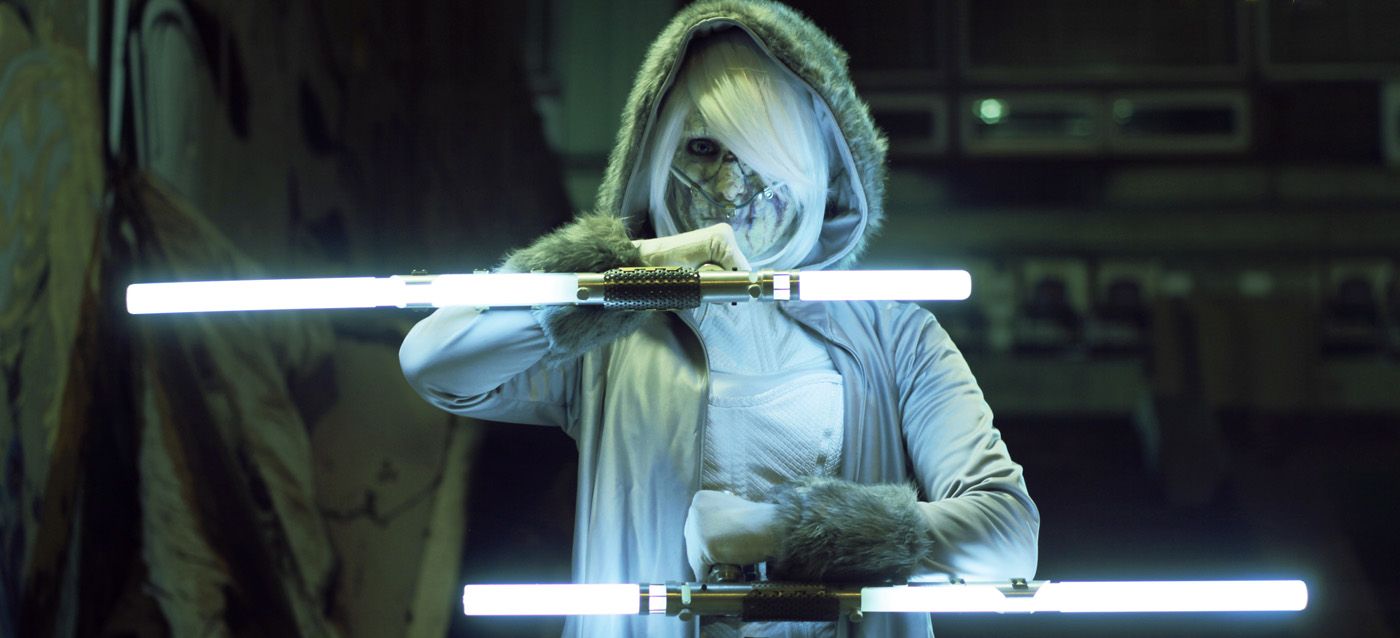
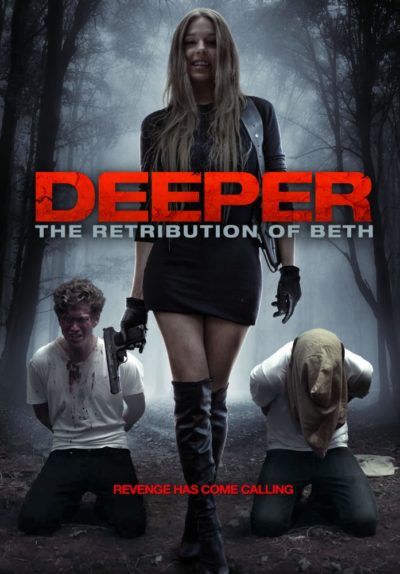 Investigative journalist Mark (Anderson) is not too happy about his latest investigative assignment: going on a ride-along with Steve (Francis), the sleazy owner of porn company “XBus”. He picks up girls on the street and supposedly, talks them into getting naked for his website, Girls Gone Wild-style. But Steve’s latest predatory mission doesn’t go as planned, after picking up the very lovely Beth (Sam) and her friend Sam (Gatien). For Beth pulls a gun, hijacks the limo, and drives the two men into the forests on the outskirts of town, clearly with savage vengeance on her mind for an incident in her – and Steve’s – past. Not quite the story Mark anticipated getting.
Investigative journalist Mark (Anderson) is not too happy about his latest investigative assignment: going on a ride-along with Steve (Francis), the sleazy owner of porn company “XBus”. He picks up girls on the street and supposedly, talks them into getting naked for his website, Girls Gone Wild-style. But Steve’s latest predatory mission doesn’t go as planned, after picking up the very lovely Beth (Sam) and her friend Sam (Gatien). For Beth pulls a gun, hijacks the limo, and drives the two men into the forests on the outskirts of town, clearly with savage vengeance on her mind for an incident in her – and Steve’s – past. Not quite the story Mark anticipated getting.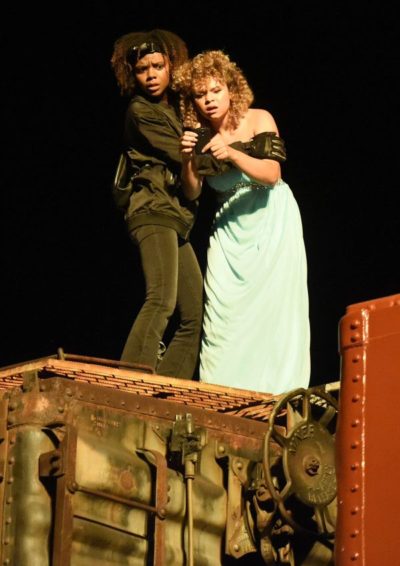 After their mother has a meltdown at her job and ends up in jail: teenage sisters Deidra (Murray) and Laney (Crow, somewhat infamous for her post-elimination meltdown on The X Factor) are left to fend for themselves. With household bills piling up – never mind trying to fund Mom’s bail, or even Deidra’s long dreamed-of college tuition – and Child Protective Services looming, things look bleak. But a visit to deadbeat Dad Chet (Sullivan, channeling David Spade), who works for a railway company, gives Deidra an idea. Hop aboard the freight trains that run by the back of their house, pop open a container to take some goods, and fence them on for cash. Things go surprisingly well, until a disgruntled railroad cop, Truman (Nelson), starts to close in on the pair, intent on rebuilding his reputation after an incident in Arizona.
After their mother has a meltdown at her job and ends up in jail: teenage sisters Deidra (Murray) and Laney (Crow, somewhat infamous for her post-elimination meltdown on The X Factor) are left to fend for themselves. With household bills piling up – never mind trying to fund Mom’s bail, or even Deidra’s long dreamed-of college tuition – and Child Protective Services looming, things look bleak. But a visit to deadbeat Dad Chet (Sullivan, channeling David Spade), who works for a railway company, gives Deidra an idea. Hop aboard the freight trains that run by the back of their house, pop open a container to take some goods, and fence them on for cash. Things go surprisingly well, until a disgruntled railroad cop, Truman (Nelson), starts to close in on the pair, intent on rebuilding his reputation after an incident in Arizona. This is set in a world where various kinds of magic exist, alongside humans. The former include shapeshifters, vampires, faes (fairies), mages and the despised “Legacies”. The last-named cover the heroine, Levy Michaels, and that’s a bit of a problem. The reason for the hate, is because some of her kind were responsible, in previous generations, for a very nasty bit of spellcasting called “The Cleanse”; it was basically intended to cause occult genocide, and only narrowly avoided. Since then, Legacies have been harried and hunted by the other kinds. Levy’s late parents taught her to hide her abilities and pass as human, and she does so now, albeit occasionally having to handle those who track her down.
This is set in a world where various kinds of magic exist, alongside humans. The former include shapeshifters, vampires, faes (fairies), mages and the despised “Legacies”. The last-named cover the heroine, Levy Michaels, and that’s a bit of a problem. The reason for the hate, is because some of her kind were responsible, in previous generations, for a very nasty bit of spellcasting called “The Cleanse”; it was basically intended to cause occult genocide, and only narrowly avoided. Since then, Legacies have been harried and hunted by the other kinds. Levy’s late parents taught her to hide her abilities and pass as human, and she does so now, albeit occasionally having to handle those who track her down.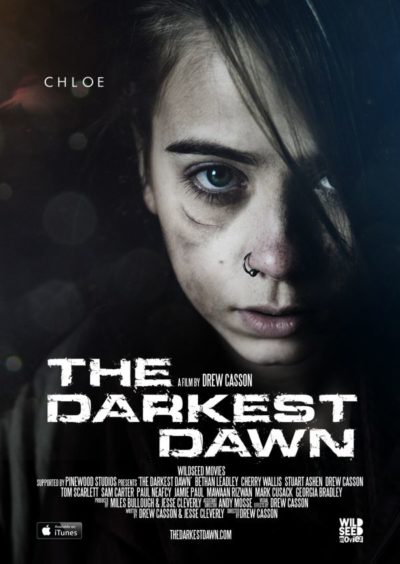 This is apparently a sequel to a previous movie about an alien invasion of Earth (and, specifically, the United Kingdom) from the same director, Hungerford. While I haven’t seen it, this likely didn’t impact things too much here; I sense it’s perhaps closer to a separate story, unfolding in the same universe, than a true sequel. It’s the story of teenage sisters Chloe (Leadley) and Sam (Wallis), with the former getting a video camera for her birthday – just in time for said invasion to kick off, with their family being separated in the ensuing chaos. Toting her camera, Chloe and her sibling take shelter, then scurry through the blasted landscape, facing the threat not just of the extra-terrestrials, but renegade bands of survivors. For it also turns out Chloe, specifically her blood, is a key to the resistance. What are the odds?
This is apparently a sequel to a previous movie about an alien invasion of Earth (and, specifically, the United Kingdom) from the same director, Hungerford. While I haven’t seen it, this likely didn’t impact things too much here; I sense it’s perhaps closer to a separate story, unfolding in the same universe, than a true sequel. It’s the story of teenage sisters Chloe (Leadley) and Sam (Wallis), with the former getting a video camera for her birthday – just in time for said invasion to kick off, with their family being separated in the ensuing chaos. Toting her camera, Chloe and her sibling take shelter, then scurry through the blasted landscape, facing the threat not just of the extra-terrestrials, but renegade bands of survivors. For it also turns out Chloe, specifically her blood, is a key to the resistance. What are the odds?